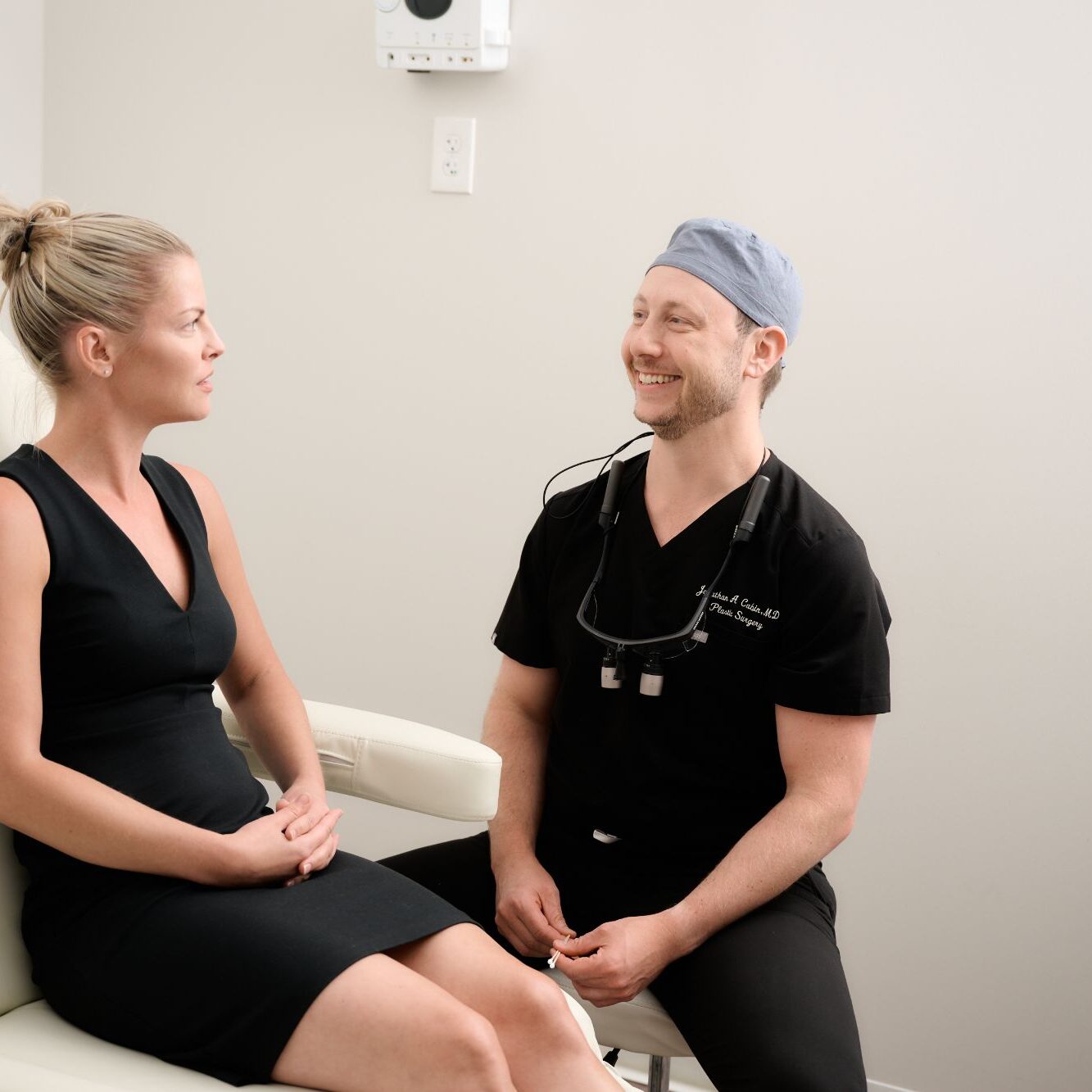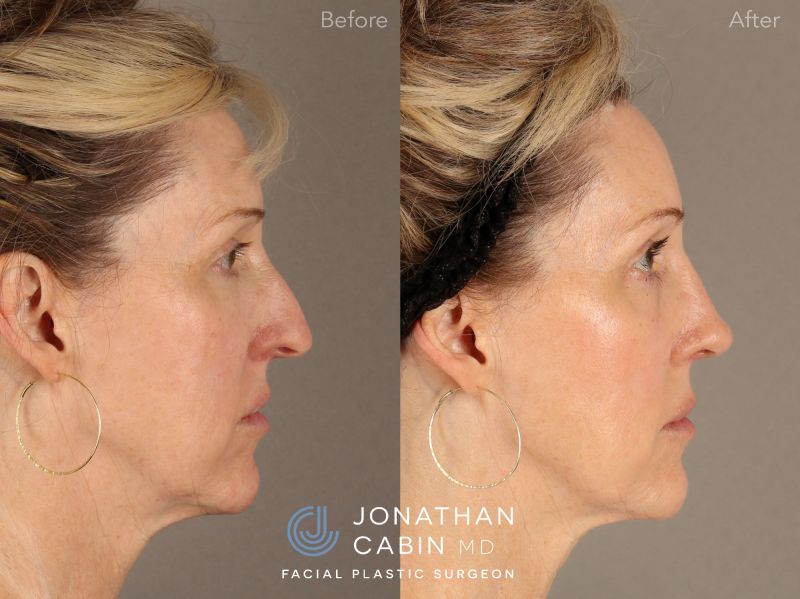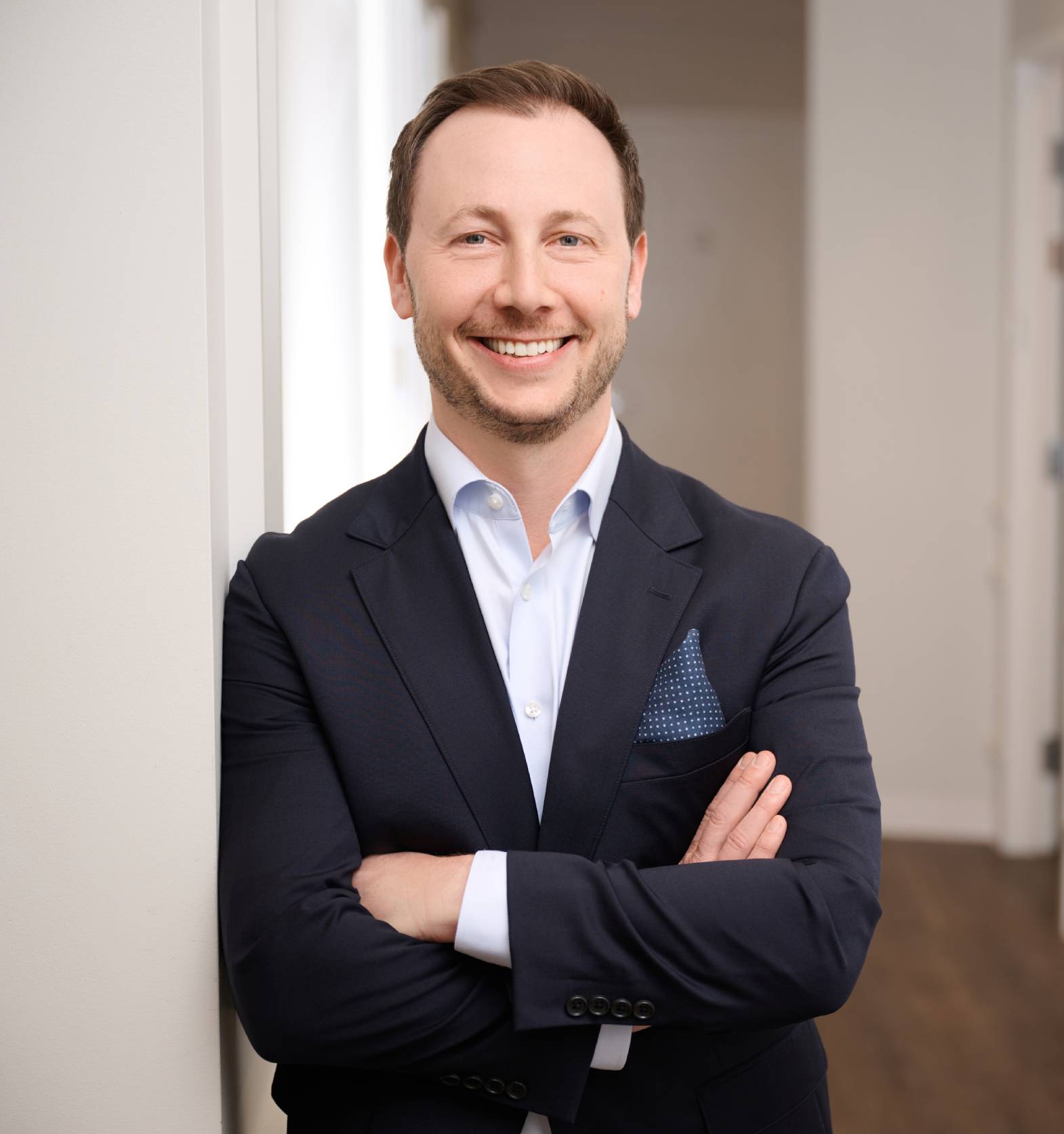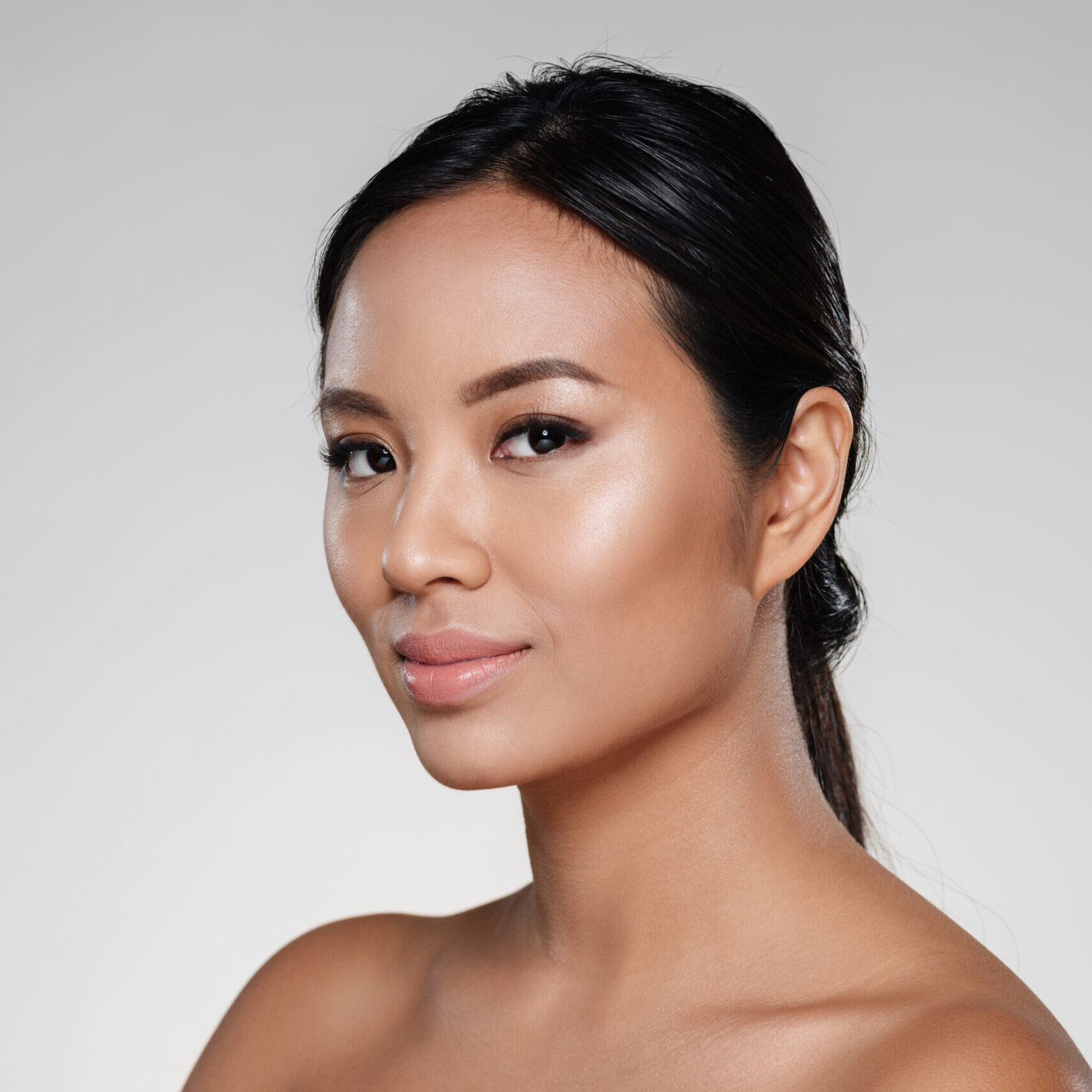Rhinoplasty | Washington, D.C.
Get the Nose You Deserve
If you’re unhappy with the shape or size of your nose, then Washington, D.C., rhinoplasty can help you get the nose you want.
Our expert, double board-certified plastic surgeon, Dr. Cabin, can customize your rhinoplasty procedure according to your functional anatomy, specific cosmetic needs, and aesthetic goals to ensure that you reap the full benefits of your nose surgery.
What Is Rhinoplasty?
Rhinoplasty surgery — also referred to as a nose job — is a nose surgery that reshapes your nose and enhances your facial harmony. It also helps you improve your nasal function and treat nasal defects, like a bump on the bridge of your nose or a bulbous nasal tip.
What Types of Rhinoplasty
Does Dr. Cabin Perform?
How Is Nose
Surgery Performed?
Dr. Cabin will typically perform your Washington, D.C. rhinoplasty surgery as an outpatient surgery. You’ll be under general anesthesia — meaning you’ll be in a deep, pain-free, sleep-like state — and, depending on your customized treatment plan, Dr. Cabin will use one of the following incisions:
- Open rhinoplasty: Dr. Cabin will use this type of nose surgery to modify the middle portion of your nose or nasal tip.
- Closed rhinoplasty: Dr. Cabin will use this type of nose surgery when he needs to make a modification to the inside of your nostrils or the bridge of your nose.
Dr. Cabin’s decision to perform open or closed rhinoplasty surgery will vary based on you, your treatment needs, and your aesthetic goals. Either approach will generally take between two and three hours, depending on the complexity of your surgery.
You’ll also need to follow up with Dr. Cabin after your procedure. These post-surgery appointments allow Dr. Cabin to track your progress and recovery and help you optimize your treatment results.

Is Rhinoplasty
Right for You?
To determine if nose surgery is right for you, you should schedule a Washington, D.C. rhinoplasty consultation with Dr. Cabin.
During your consultation, Dr. Cabin will examine your nose, including your nasal profile and the portrait, or frontal, view of your nose. He’ll also study the relationship between your nose and your other facial features, including your lips, forehead, and eyebrows.
Next, Dr. Cabin will discuss your concerns and answer any questions you have about the procedure.
Dr. Cabin will also use simulation technology to digitally morph your photo and demonstrate how rhinoplasty surgery will impact your facial appearance. This process helps you and Dr. Cabin align in aesthetic vision and goals.
If Dr. Cabin determines that you can safely and effectively undergo nose surgery, he’ll outline all the steps of your surgery and provide you with a treatment timeline.
Rhinoplasty Results
Check out the natural-looking results of Dr. Cabin’s rhinoplasty patients in Washington, D.C., and the surrounding areas.
View Gallery
Why Choose
Dr. Cabin?
Rhinoplasty can improve your overall facial appearance by bringing balance to your face. You can reshape or resize your nose, ensuring your nose complements your other facial features. If you suffer from sinus problems or birth defects, rhinoplasty can also correct these issues.
Dr. Cabin’s goal is to help you get a nose that matches your face — a natural-looking nose that looks proportional to your cheeks, chin, and other facial features. By taking the attention of your nose, you ensure your eyes — not your nose — are the start of the show and serve as the focal point of your face.


What Your Rhinoplasty Recovery Will Look Like
For the first week after your surgery, you’ll need to rest and generally avoid any kind of strenuous activity. After this first week, you should be able to return to work.
Typically, you’ll require about three to four weeks to fully recover from your rhinoplasty procedure. After a month, swelling and bruising should have subsided, and you’ll be able to admire your new and improved nose.
If you still have signs of trauma or any discomfort after three to four weeks, you’ll need to contact Dr. Cabin or another medical professional.
